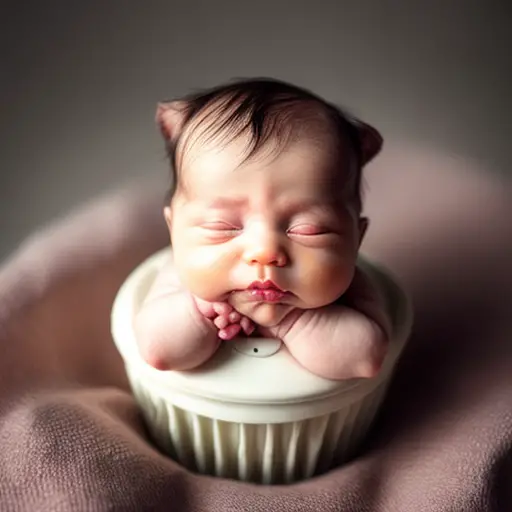Alright, folks, let's dive into the fascinating world of infant mental health! Now, I know what you're thinking, 'Babies and mental health? What's the deal?' Well, let me tell you, it's not just about tiny couches and baby-sized therapy sessions. Infant mental health is all about understanding and nurturing the emotional well-being of our little bundles of joy. It's like laying the groundwork for their future mental and emotional stability. We're talking about building a solid foundation here, folks, so these tiny humans can grow up to be well-adjusted adults instead of, you know, those people who argue with their own reflection in the mirror. Trust me, it's a wild ride, but buckle up because we're about to explore the magical world of infant mental health!
Infant mental health refers to the emotional, social, and cognitive well-being of babies and toddlers. It focuses on understanding and promoting healthy development during the critical early years of life. Interestingly, research has shown that the quality of a child's early relationships and experiences significantly impacts their brain development and future mental health outcomes. This means that nurturing and responsive caregiving in infancy can have a profound and lasting impact on a child's overall well-being, shaping their ability to form healthy relationships, regulate emotions, and navigate challenges later in life.
Alright, my fellow curious minds, let's take a journey into the mysterious realm of infant mental health once again! In this mind-boggling adventure, we'll be exploring the developing mind of these tiny humans. You see, there are critical periods in their early years where their brains are like sponges, soaking up all the experiences and shaping their future selves. It's like they have a VIP pass to the world of learning, emotions, and social interactions. But wait, there's more! We'll also be uncovering the key factors that influence their mental well-being, like the quality of their relationships, the environment they grow up in, and even the genes they inherit. So, get ready to have your mind blown as we unravel the secrets of the developing mind in the captivating world of infant mental health!

Alright, my fellow caregivers and future experts in infant mental health, let's talk about the crucial role we play in nurturing healthy attachments with these little bundles of joy! You see, infant mental health is not just about the baby's well-being, it's about the dynamic dance between the caregiver and the child. It's like a beautiful tango where we provide the love, care, and support that these tiny humans need to thrive emotionally. By forming secure attachments, we create a safe and trusting environment for them to explore the world, express their emotions, and develop a strong sense of self. It's like we're their emotional superheroes, cape and all!
But how do we become these attachment superheroes, you ask? Well, it all starts with being responsive and sensitive to their needs. We need to be like those expert detectives, always attuned to their cues and signals, ready to swoop in and provide comfort when they're upset or scared. It's like we have a secret decoder ring that helps us understand their non-verbal language. By doing so, we build a solid foundation of trust and security, which sets the stage for healthy emotional development.
Now, I know what you're thinking, 'But what about those moments when we're exhausted and just want to binge-watch our favorite show?' Trust me, we've all been there. But here's the thing, even in those moments, we can still be there for them. It's about finding that balance between meeting their needs and taking care of ourselves. So, go ahead and enjoy that guilty pleasure, but also remember to create those special moments of connection and bonding. It's like a power-up for their mental well-being!
In the end, nurturing healthy attachments is like planting the seeds of emotional resilience and well-being in these little humans. It's about being their rock, their safe haven, and their biggest cheerleader. So, let's embrace our role as caregivers and champions of infant mental health, because together, we can help these tiny superheroes conquer the world with their emotional strength and resilience!
Fun fact: Infant mental health refers to the social, emotional, and cognitive well-being of babies and toddlers. It focuses on understanding and promoting healthy development in the earliest years of life, recognizing that even infants have their own unique thoughts, feelings, and experiences.
Alright, my vigilant advocates for infant mental health, let's dive into the important topic of recognizing and addressing early challenges that may arise. You see, infant mental health is not all rainbows and unicorns. Sometimes, these little ones may face certain risk factors that can impact their emotional well-being. It's like a game of detective, where we need to be on the lookout for signs and clues that something might be amiss. By identifying these risk factors early on, we can swoop in and provide the support and interventions needed to promote their mental health. It's like being their personal superhero team, ready to tackle any challenges that come their way. So, let's keep our eyes peeled, stay informed, and be proactive in supporting the mental well-being of these tiny humans. Together, we can make a difference!